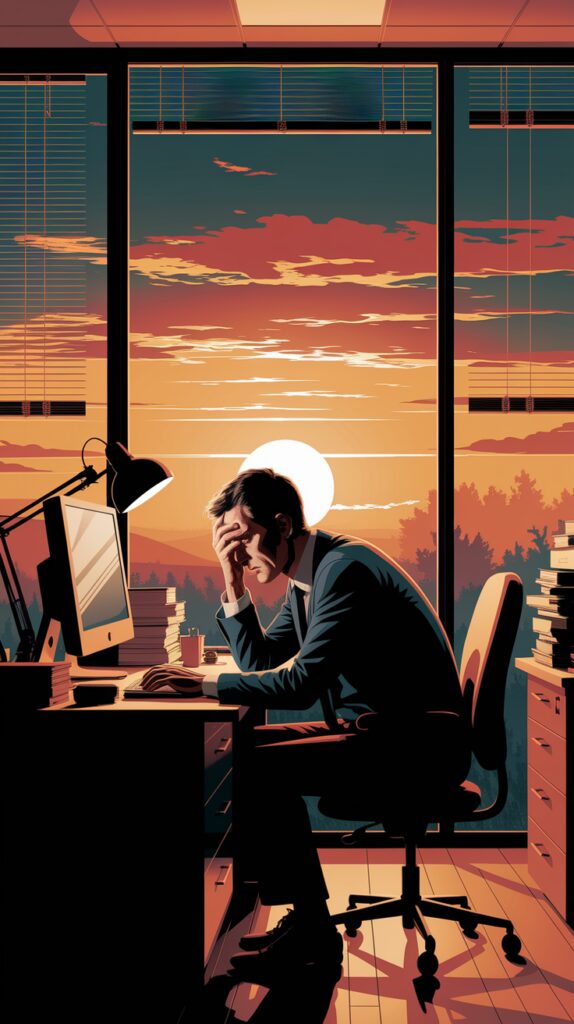You’ve probably heard someone say, “My shrink said…” and wondered where that quirky nickname came from. I remember the first time I heard it—I pictured some sort of magical shrinking machine (which is hard to believe, but it’s true). The term “shrink” is a playful, almost whimsical way folks have referred to psychiatrists for decades, but the story behind it is more interesting than you might think.
It’s not just a funny word people throw around. “Shrink” has roots in pop culture and carries a bit of charm, a dash of mischief, and a lot of history. If you’ve ever found yourself asking, “why are psychiatrists called shrinks?”—you’re not alone. In this post, I’ll walk you through how the nickname caught on, what it says about our views on mental health, and why it’s still part of our everyday conversations today.
By the end, you’ll know exactly where “shrink” came from, and you might even want to share the story the next time it comes up at your family dinner (trust me, it’s always a conversation starter).
Tracing the Origin of the Term ‘Shrink’

Okay, so you’re wondering why psychiatrists are called shrinks—where did that wild nickname even come from? The answer is a mix of history, language, and a fair bit of creativity. The story behind “shrink” stretches back decades and takes a curious route through old traditions, slang, and some of those classic moments in film and TV we all love. Let’s take a quick trip through time and see how “shrink” went from a strange-sounding word to a staple in our talk about mental health.
From ‘Headshrinker’ to ‘Shrink’: Early Uses and Etymology
Back in the day, especially in the early 20th century, the term “headshrinker” started popping up in American slang. This wasn’t just a random word someone made up—it actually has roots in stories about certain Amazonian tribes known for shrinking heads as trophies. Sounds weird, right? People in Western culture heard about this practice and, with a bit of a dark sense of humor, started using “headshrinker” to poke fun at those who worked with the mind.
It’s pretty simple when you break it down:
- Head: refers to the mind or psyche.
- Shrinker: borrowed from the practice of physically shrinking a head.
So, by calling a psychiatrist a “headshrinker,” folks were joking that these doctors would “shrink” your head—not literally, of course, but by digging into your thoughts and problems. The term first showed up in print around the 1940s, appearing in books, newspapers, and even the occasional stiff-collared academic journal.
But like any good nickname, it didn’t take long to get shortened. “Headshrinker” is a mouthful, so people just started saying “shrink.” By the 1950s, it was common enough that you’d hear it in everyday conversation—and not just from the class clown.
Why did it stick? Because it was playful and a tiny bit rebellious. Instead of using a stiff word like “psychiatrist,” people could use “shrink” and feel like they were in on a joke. Over time, “shrink” became a lighthearted way to talk about therapy without sounding formal or stuffy.
Rise in Popularity: The 20th Century and Pop Culture Influence
Now, here’s where things get fun. If you’ve seen a few old movies or sitcoms, you’ve probably noticed—Hollywood fell in love with “shrink.” In the 1950s and 1960s, pop culture picked up the term and ran with it. Writers, directors, and comedians started dropping “shrink” into punchlines, movie scripts, and the playful banter we see on screen.
A few key moments helped the term explode:
- Literature: Novels and short stories from the mid-century often featured quirky therapists and used the term “shrink” to add a comic touch or break the ice around tough subjects.
- Hollywood Films: Classic comedies and dramas—from Woody Allen’s Annie Hall to One Flew Over the Cuckoo’s Nest—included characters who talked about seeing their “shrink.” This made the term feel familiar, even for folks who’d never been near a psychiatrist’s couch.
- Television: By the time shows like The Bob Newhart Show and Frasier hit the airwaves, the “shrink” stereotype was everywhere. These characters were smart, witty, and sometimes a little neurotic—exactly how people imagined psychiatrists.
Here’s what made “shrink” stick in our language:
- It’s quick and easy to say.
- It’s lighthearted—so folks didn’t feel weird talking about mental health.
- It connected psychiatry to pop culture, making it less intimidating.
Over time, “shrink” transformed from an inside joke into something warmly familiar. It became part of watercooler talk, playground pranks, and even family dinners. The combination of simplicity, pop culture reference, and a dash of friendly teasing is why “shrink” stayed on everyone’s lips for so long.
So when you wonder, “why are psychiatrists called shrinks?” think of it as a nickname with a strong sense of personality, a sprinkle of old-school humor, and a seal of approval from Hollywood. That’s how a word that started with headhunters and tall tales made its way into our homes, our hearts, and our pop culture vocabulary.
Why the Nickname Stuck: Social and Professional Implications

Let’s face it—“shrink” is one of those nicknames that just seemed to jump off the tongue and into our everyday talk. It’s quick, playful, and a tiny bit cheeky. But underneath that lighthearted ring, there’s a much bigger story about how society sees psychiatry and the people who practice it. The nickname has stayed around for reasons that go deeper than just a catchy sound. Let’s peek into why “shrink” took on a life of its own, with all the laughs, rolled eyes, and mixed feelings along the way.
Humor and Levity: Coping With Mental Health Topics
Mental health can feel scary or awkward to talk about—like showing up to a party in your pajamas. Psychiatry often deals with hard stuff: deep fears, heartbreak, stresses you don’t talk about at dinner. For most people, bringing humor into the mix helps lighten things up.
Calling psychiatrists “shrinks” makes the topic less heavy. Instead of saying, “I have a session with my psychiatrist,” it’s easier to blurt out, “I’m seeing my shrink.” It sounds breezy, maybe even a little rebellious—like you’re in on a private joke. Here’s how humor helped the nickname “shrink” stick:
- Takes the edge off: Mental health used to be a taboo subject. Adding a funny twist brought it into the open.
- Makes it easier to admit: Telling your friends or family “I go to a shrink” feels lighter than “I see a psychiatrist.”
- Breaks down barriers: It helps people step past their nerves or shame and share their real feelings.
The nickname almost acts like a secret handshake—if you say “shrink” with a grin, people know you get it. You’re not just talking symptoms and diagnoses; you’re showing that it’s okay to laugh, too.
I’ve heard families use “shrink” as a way to talk about therapy without the room getting tense. Suddenly, discussing appointments becomes as casual as scheduling a haircut or dentist visit. There’s a freedom in that—a feeling that it’s normal, not something to whisper about.
Stigma and Stereotypes: The Dual-Edged Sword
For all its fun, “shrink” can also sting. The word started as a joke, and jokes sometimes hurt, even when they mean well. The image of a psychiatrist “shrinking heads” pokes fun, but it can downplay the skill and care involved in mental health work.
While humor makes things easier, it can also:
- Oversimplify the profession: Calling someone a “shrink” skips over their years of training and the importance of psychiatric care.
- Feed old stereotypes: People sometimes picture psychiatrists as quirky, aloof, or even mysterious—all thanks to TV and movies.
- Add to stigma: Joking can accidentally push the message that mental health isn’t a serious topic.
Public views of psychiatry have always been mixed. Some feel comforted by the nickname; others see it as a jab. The nickname “shrink” can feel welcoming or dismissive, depending on who says it—and how.
Here are a couple of real-world ways “shrink” plays both sides:
- School kids may use it to tease or exclude, making teens anxious about going to therapy.
- Adults in the workplace might say, “He’s off to see his shrink,” half-laughing, half-judging.
- Media stereotypes paint shrinks as couch-bound listeners taking endless notes, missing the real work they do.
Still, even with its baggage, “shrink” hasn’t faded away. Why? Because, like most nicknames, it has become woven into pop culture and family talk. Everyone knows what it means. It balances between humor and respect, making tough conversations a little easier, even as it keeps the old stereotypes alive.
When we ask why are psychiatrists called shrinks, we’re really asking why that funny, maybe-not-so-flattering nickname keeps showing up. The answer? It’s a shortcut. It helps people open up. It reminds us all—sometimes we need to laugh, even about the heaviest things. But it also nudges us to stop and think about the deeper story behind the word.
Modern Usage and Relevance in Mental Health Care

The nickname “shrink” has deep roots, but what about today? The world is changing, and how we talk about mental health is changing right along with it. There’s something strangely charming about this nickname—sometimes it acts as a cozy old sweater, other times it feels itchy and out of date. Let’s look at how “shrink” is used now, and how our words around psychiatry are shifting as society becomes more open and caring about mental health.
Is ‘Shrink’ Still Common Today?
If you hang around therapy offices or group chats, you’ll notice “shrink” still pops up. The word hasn’t vanished. But it’s taken on a new flavor, depending on who’s using it and why.
For some people—usually those who grew up watching sitcoms with wisecracking therapists—“shrink” feels like an inside joke. It rolls off the tongue with a hint of fondness, almost like calling your grandma “Nana.” Some patients even say it with a smile, using the nickname to make their mental health routines feel more normal or casual.
- Family and friends: You might hear, “I’m off to see my shrink,” said with a wink. It breaks the ice, making the whole thing feel more everyday.
- On TV and in books: Writers still use “shrink” as shorthand for a therapist. It keeps conversations breezy and quick.
But talk to psychiatrists, psychologists, or mental health counselors, and you’ll get a mixed bag of feelings:
- Some professionals chuckle and shrug it off, knowing the word is wrapped up in history and humor.
- Others feel it’s a bit dismissive—like calling a chef a “microwaver.” It skips over all the skill, study, and care that goes into the work.
And then there are newer voices—patients who feel deeply about respect and dignity. For them, “shrink” lands a touch flat, maybe even offends. The word makes mental health care sound less serious or important.
So, is “shrink” still common? Yes, especially in casual talk. But younger professionals and patients are growing more aware of how it sounds. You’ll notice more folks saying “my therapist,” “my psychiatrist,” or “my counselor” instead. The nickname isn’t gone. It’s just not the only option anymore.
Society’s Evolving View of Psychiatry and Language
We’re living in a time where people talk about mental health like never before. Sharing stories about therapy is becoming a normal part of life, and the “why are psychiatrists called shrinks” question pops up right alongside bolder mental health conversations.
Here’s how our culture is shifting—and how slang like “shrink” fits in:
- Openness is in: Social media, podcasts, and movies all talk about anxiety, depression, and self-care. Celebrities share therapy journeys. Friends swap stories about what helped them.
- Language is gentle: Instead of poking fun, most folks aim for warmth and care. Words like “shrink” feel playful to some but a bit outdated to others.
- Respect matters: People want their mental health respected—just like their physical health. New language reflects that. Many now say “mental health provider” or use full titles like “psychiatrist” or “psychologist.”
It’s a little like switching from nicknames to first names at a big family dinner. When the conversation is light, the old nickname still sneaks in. When things get serious—or you’re around someone new—it feels better to use the proper words.
Look at recent campaigns by mental health groups:
- They urge us to drop stigma.
- They encourage “talking about mental health like we talk about the weather.”
- They steer, gently, toward words that show respect.
What’s interesting? Many professionals still laugh about “shrink,” but they also spend time talking with patients about what they want to be called. Some people love the relaxed mood it brings. Others want the focus and dignity of real titles.
The nickname “shrink” isn’t disappearing, but it’s sharing space with a whole bouquet of respectful terms. This shows how much mental health care has moved from the shadows and into the spotlight—a place where everyone’s voice and comfort matter.
If you’re wondering “why are psychiatrists called shrinks” in this context, the answer circles back to tradition, pop culture, and that friendly, teasing shorthand. But it also tells us something bigger: As we keep talking about our mental health, the words we use matter more than ever. We’re rewriting some of those old lines—and building kinder, more honest conversations in the process.
Conclusion
The nickname “shrink” is woven from playful history, bold pop culture, and everyday talk. It slipped into language as a way to lighten tricky conversations and made its home around family tables and on TV screens. When people ask why psychiatrists are called shrinks, what they’re really hearing is a story of how humor and habit shape the way we talk about serious things.
Language grows along with culture. Words like “shrink” remind us that old nicknames stick around for comfort and convenience, even as more thoughtful terms take root. When we talk about mental health, choosing caring, mindful words helps everyone feel welcome and understood.
Thank you for spending your time with me and exploring this odd but charming nickname! I’d love to know—do you use “shrink” or stick to other words? Share your story in the comments or pass this history along at your next family gathering. How we talk matters, and you’re part of that conversation.
